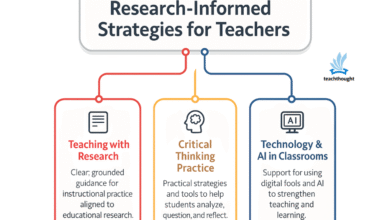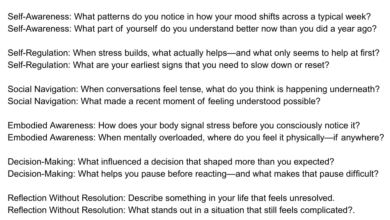
Image Source pixabay
by TeachThought Staff
Educational leadership is an expansive field, rich with opportunities for those passionate about shaping the future of education.
It encompasses a range of roles that go beyond traditional teaching, delving into the realms of administration, policy-making, and program development. These careers are pivotal in molding educational systems and practices, directly impacting the quality of education learners receive at all levels.
Education leaders are visionaries and change-makers. They take on the responsibility of guiding schools, colleges, and entire educational systems towards excellence. Their roles involve strategic planning, implementing innovative educational practices, and ensuring that educational institutions not only meet but exceed standards of teaching and learning. This journey is not just about managing the administrative aspects of education; it’s about inspiring educators, influencing policy, and advocating for students and teachers alike.
A career in educational leadership is ideal for those who wish to make a significant impact in the education sector, influencing how learning is approached and delivered. These professionals are instrumental in shaping an environment that nurtures the academic and personal growth of students while also ensuring that educators have the support and resources they need to excel in their roles. Let’s explore ten such career paths where you can leave a lasting imprint on the world of education.
Education policy analysts are crucial in shaping and reforming education systems. Their role involves deep research, analysis of educational policies, and development of strategies to enhance the effectiveness of education at various levels. An advanced degree, such as an educational doctorate, can benefit this career path. These programs provide the comprehensive knowledge and research skills necessary to understand complex educational issues and devise effective policy solutions.
An online educational doctoral program offers the flexibility needed by professionals who are already working in the education sector or other fields. These programs often cover various topics, including educational policy, leadership, curriculum design, and educational technology, equipping graduates with the expertise needed to analyze and influence education policies effectively.
As a school principal, you’re the driving force behind a school’s culture, effectiveness, and overall success. This role involves overseeing daily school operations, setting educational goals, and working closely with teachers and staff to achieve these objectives. School principals also play a critical role in fostering a safe and productive learning environment and engaging with the community. It’s a position that requires strong leadership, decision-making, and interpersonal skills, offering the chance to influence the educational journey of countless students directly.
Curriculum coordinators, or instructional coordinators, are responsible for developing and implementing school educational programs. This role involves evaluating current curricula, introducing new educational materials, and ensuring compliance with state and federal standards. As a curriculum coordinator, you’ll work closely with teachers and administrators to enhance teaching practices and improve student learning outcomes. This career is ideal for those passionate about shaping the educational content and teaching strategies that form the foundation of students’ learning experiences.
Academic deans play a pivotal role in higher education institutions. They oversee academic policies, faculty matters, and budgeting for specific departments or colleges within a university. Academic deans are instrumental in shaping the academic vision, ensuring the quality of education, and supporting faculty and student success. This career path offers the opportunity to influence higher education strategically, requiring strong leadership, organizational, and communication skills.
As a superintendent, you’re the chief executive officer of a school district, responsible for implementing educational policies and overseeing multiple schools. This role involves strategic planning, budget management, and collaboration with school boards, principals, and the community. Superintendents must have a vision for district-wide success and the ability to lead and inspire a large team of educators. It’s a challenging but highly influential position in the educational landscape.
Chief academic officers (CAOs) are responsible for the academic operations of an educational institution, typically at the college or university level. They oversee faculty development, academic programming, and student learning outcomes. As a CAO, you’ll ensure that the institution’s academic goals align with its mission and standards. This role requires a blend of academic expertise and administrative prowess, offering the chance to shape the educational strategies of higher education institutions.
Educational consultants provide expertise to schools, districts, and educational organizations to improve student learning and organizational effectiveness. They might specialize in areas such as curriculum design, teacher training, or educational technology. This career offers flexibility and variety as consultants work on different projects and with various clients, constantly adapting to new challenges and educational environments.
Directors of student services are dedicated to enhancing the student experience in educational institutions. They oversee programs related to student affairs, including counseling, extracurricular activities, and academic advising. This role is central to ensuring that students receive the support and resources they need to succeed academically and personally. It’s a career that combines administrative skills with a deep commitment to student well-being and development.
Learning and development managers are typically found in corporate or organizational settings. They design, implement, and oversee training programs for employees. This role involves assessing training needs, developing educational materials, and evaluating the effectiveness of training programs. It’s an ideal career for those interested in adult education and organizational development, offering the opportunity to impact the professional growth and skills of employees directly.
College registrars are key administrative figures in higher education institutions. They manage student records, oversee registration processes, and ensure compliance with educational regulations and standards. This role requires strong organizational skills, attention to detail, and the ability to handle sensitive information. As a registrar, you’ll play a crucial role in smoothly running academic affairs within a college or university.
In conclusion, careers in educational leadership offer diverse opportunities to impact the world of education at various levels. Whether you’re interested in shaping academic policies, improving curriculum, or supporting student success, there is a role in educational leadership that can align with your passion and expertise. These careers require a combination of leadership, strategic thinking, and a deep commitment to education, offering the chance to make a lasting difference in the lives of learners and the future of education.
Source link







